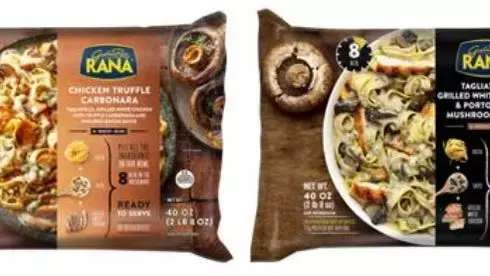In a concerning development, Costco has announced the recall of several food products containing meat due to potential listeria contamination. This move is part of a broader recall involving ready-to-eat chicken and other meat sold across various grocery stores in the United States. The affected products were sold between September and October 2024, and the company is urging customers to refrain from consuming them and instead return them to their local Costco for a full refund.
Uncovering the Scope of the Recall: Protecting Consumers from Listeria Risks
Costco's Expanding Recall Efforts
Costco's recent recall announcement is the latest in a series of actions taken by the company to address potential food safety concerns. The recall includes two specific products: Rana Chicken Truffle Carbonara and Tagliatelle Grilled White Chicken & Portabello Mushroom Sauce. These items were sold at Costco locations nationwide during the specified timeframe.This recall is part of a larger effort to address a concerning trend in the food industry. Listeria monocytogenes, a potentially deadly bacterium, has been detected in various ready-to-eat meat and poultry products, prompting widespread recalls across multiple retailers, including Walmart, Publix, Target, Aldi, and Trader Joe's.Tracing the Recall's Origins: The BrucePac Connection
The Costco recall is directly linked to a more extensive recall involving the pre-cooked meat producer BrucePac. The U.S. Department of Agriculture (USDA) first announced BrucePac's nearly 10 million-pound recall on October 9th, after routine testing revealed the presence of L. monocytogenes in the company's ready-to-eat poultry products.These affected BrucePac products were shipped to establishments and distributors nationwide, including restaurants and other food institutions. As a result, they have appeared in a variety of pre-packaged foods, salads, and frozen meals under different brand names sold at various locations.Protecting Consumers: Proper Handling and Disposal of Recalled Products
Costco and other affected retailers are taking proactive steps to ensure the safety of their customers. Customers who have purchased the recalled products are advised not to consume them and instead return them to the place of purchase for a full refund.Retailers, on the other hand, are instructed to remove the recalled products from their shelves and either dispose of them or return them to the manufacturer. This coordinated effort aims to prevent the further distribution and consumption of potentially contaminated items, minimizing the risk of listeria exposure.Vigilance and Transparency: Monitoring the Situation and Communicating with Consumers
As the recall situation continues to unfold, Costco and other affected retailers are maintaining a high level of transparency and communication with their customers. Regular updates on the scope of the recall, the specific products involved, and the necessary steps for consumers to take are being provided through various channels.Consumers are encouraged to stay vigilant and monitor for any further developments or expanded recalls related to this issue. By working together, the industry and consumers can ensure that potentially contaminated products are swiftly identified and removed from the market, protecting public health and safety.Listeria Poisoning: Symptoms, Risks, and Seeking Medical Attention
Listeriosis, the illness caused by the Listeria monocytogenes bacterium, can be a serious and potentially life-threatening condition, particularly for certain high-risk groups. Symptoms of listeriosis include fever, muscle aches, headache, stiff neck, confusion, loss of balance, convulsions, diarrhea, and other gastrointestinal issues.Pregnant women, older adults, and individuals with weakened immune systems are at a higher risk of developing severe complications from listeriosis, including miscarriage, stillbirth, premature delivery, and life-threatening infections in newborns. In the event of experiencing flu-like symptoms within two months of consuming potentially contaminated food, individuals in these high-risk categories are advised to seek immediate medical attention.By staying informed, following proper food handling and disposal guidelines, and seeking prompt medical care when necessary, consumers can play a crucial role in mitigating the risks associated with this recall and protecting their health and well-being.
